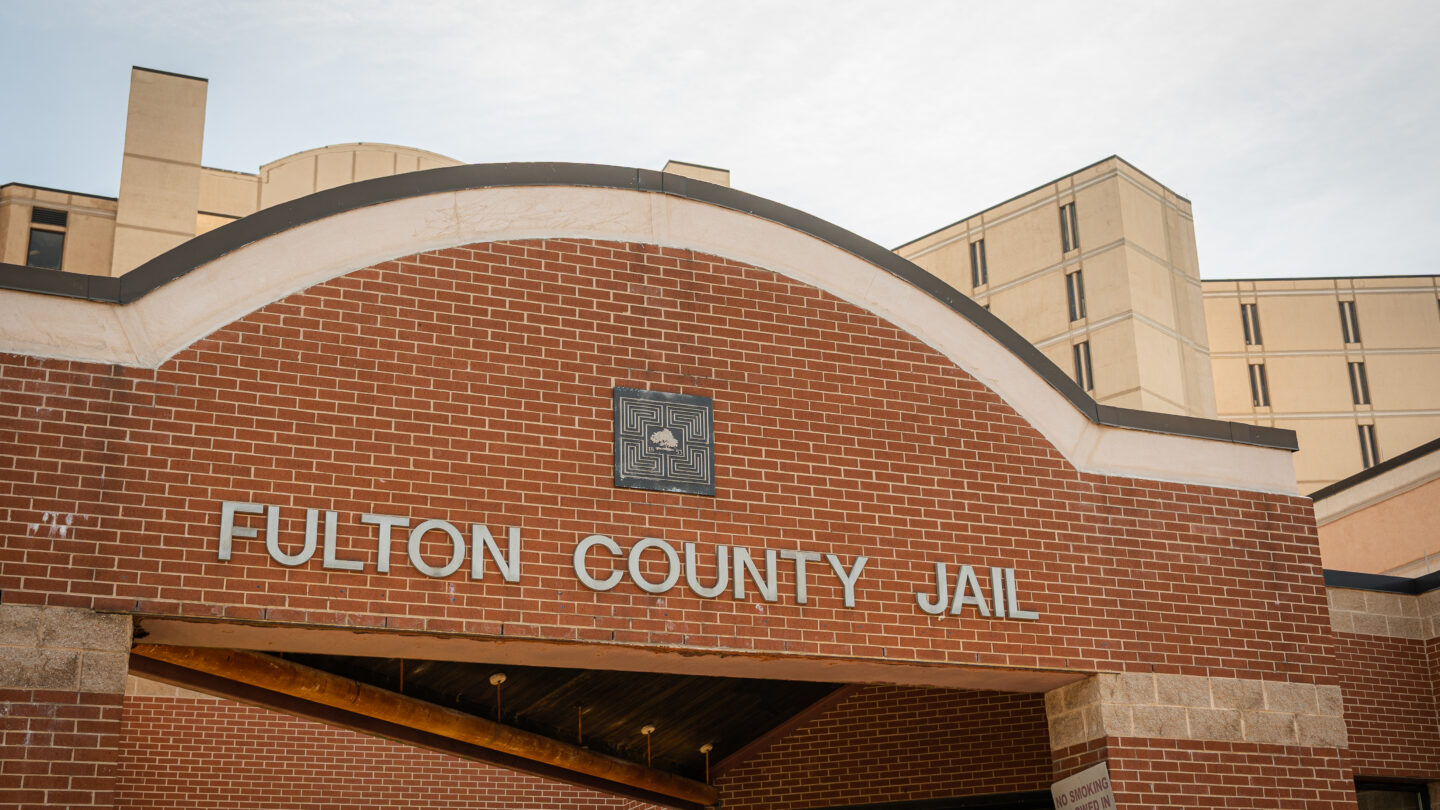The troubled jail in Atlanta where former President Donald Trump surrendered in August is in such bad shape that inmates are able to make weapons from broken flooring and pipes, an attorney for the sheriff’s office told state lawmakers Thursday.
But Amelia Joiner also said the Fulton County Sheriff’s Office had made progress in recent months to reduce overcrowding across its jail facilities.
Joiner was among several people who testified on the first day of hearings before a state Senate subcommittee studying problems with the jail system in Georgia’s most populous county.
Fulton County’s main jail, which opened in 1989 in a neighborhood west of downtown Atlanta, has been plagued by overcrowding, unsanitary conditions and violence. Ten people have died in Fulton County custody this year, Joiner said.
The U.S. Department of Justice announced earlier this year that it had opened a civil rights investigation into conditions in the jail system, which has five different facilities. Officials cited in part the death last year of Lashawn Thompson, whose body was found covered in insects.
The subcommittee plans to look at jail funding and management, as well as how quickly Fulton County District Attorney Fani Willis and the judicial system are processing inmates’ cases, subcommittee Chair Randy Robertson, a Republican, said. Robertson, who used to work at a jail, said the goal was to offer recommendations for lawmakers to consider.
Some Republicans have blamed Willis for the overcrowding, suggesting she has diverted too many prosecutors to pursuing the case that led to the indictments of Trump and 18 others for conspiring to overturn Georgia’s 2020 presidential election.
Of 3,500 people jailed at the end of August in Fulton County, 35% had yet to be indicted and faced no other charges. Though Trump surrendered at the main jail in August, he was immediately released on bond and returned home.
Willis dismissed criticism in July that Trump was keeping her office from handling other cases, saying, “We can walk and chew gum at the same time.”
Robertson said Thursday the subcommittee was not interested in politics.
“This will not be a political podium for anyone to come and speak about what their beliefs are,” he said.
Fulton County Sheriff Pat Labat has campaigned to build a new jail, which could cost $1.7 billion or more. Fulton County Commission Chair Robb Pitts has said he wants to seek other solutions, in part because such an expensive undertaking would probably require a tax increase on Fulton County’s million-plus residents.
Joiner also called during her testimony for a new jail while going through some of the challenges that the current system faces.
Of the 2,900 or so inmates, 1,000 have severe or serious mental health problems, she said. As of Wednesday, officials had counted nearly 300 stabbings, more than 900 assaults by inmates on other inmates and 68 assaults on staff this year. At the main jail, more than 300 beds were “inoperable” because of deterioration to the building, she said.
“The physical plant has become so dilapidated that the inmates are able to create weapons by reaching into the walls, using broken flooring, electrical covering, pipes, etcetera to create makeshift weapons,” she said.
She also cited some improvements. She said a new inmate advocacy unit has been able to get more than 250 inmates released.
The jail population has recently dropped from a high of 3,700 inmates to less than 3,000. That’s reduced the number of inmates forced to sleep on plastic bunks on the floor from 600 to 13, she said.
Robertson toured the main jail and said he found it clean.
“Everything looked well-maintained,” he said. “Staff was extremely professional.”









